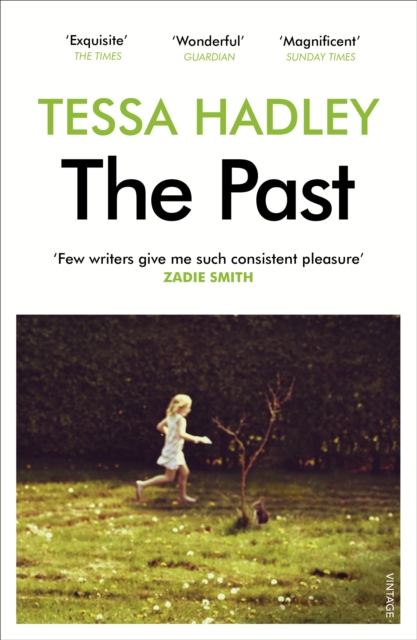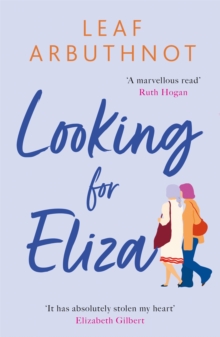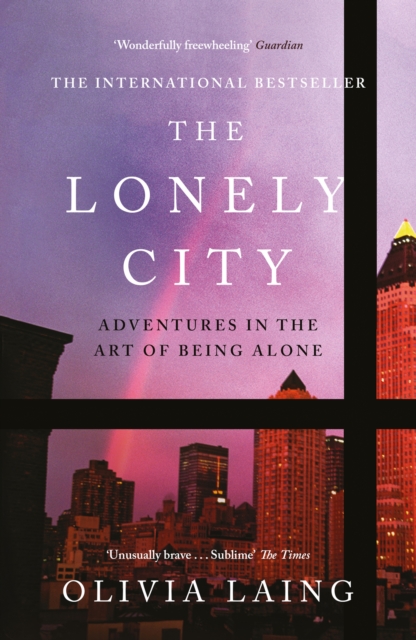Looking for Eliza: Leaf Arbuthnott on happy fiction and queer stories
Mairi
Times are tough, if you could use a shot of warmth to thaw your frozen hearts give the wonderful Leaf Arbuthnot a go!
Books have such a long journey from page to print I’m always amazed when one lands that is JUST the right book for JUST the right time- cue Looking for Eliza. It’s a warm, quirky inter-generational novel about grief and isolation and friendship that is brimming with heart and humour.
It’s quietly queer, gently hopeful and very funny- it explores the power of reaching out, of connection, of shared stories and poetry and writing.
These days many of us are striking up new socially distanced friendships in our stairwells, extending solidarity and jumping into new networks. it’s a time for unlikely friendships, especially the kind that really shouldn’t be unlikely.
So this Lighthouse Life Raft features the wonderful Leaf - And yes! You can order up the book now, it’s up in the shop homepage, and yes you should, because it’s fab (and you can make supporting a debut author & indie bookshop your double good deed of the day. Win win win)
But first, join us in meeting Leaf, whom we had a wee (virtual) chat.
As ever, we’d like to start by checking in, how are ya doing?
I’m not too bad. I’m healthy and not in immediate financial precariousness, so I’m feeling fortunate. Still, I’m over the situation - we’ve all seen what pandemics are like now, so it would be cute if we could do something else. I’m worried about how much this will embed injustices already in society and I’m gutted that the UK government got the response so wrong, at least in those crucial early weeks.
And how was the book’s journey?!
It’s been fairly smooth! It’s been interesting seeing how the sausage gets made, partly because I’ve spent years writing book reviews and feel I’ve finally passed through to the other side.
It’s a momentous thing to have a book published, but this is quite a time to make your debut, and with a book that’s so full of heart and humanity! How is it having Looking for Eliza out in the world?
It’s strange. For obvious reasons I never imagined that this is the kind of world the book would wing its way out into. I’m sad that so many independent bookshops are having a rough ride, and I’m really worried about how the pandemic will impact publishing. I’m sure lots of books that might have been published won’t be. I’m full of gratitude to the bookshops that are continuing operating despite the challenges, by pivoting to online sales. It must be unbelievably stressful.
But it’s a joy to know that Looking for Eliza will find readers that aren’t my mum and my editor. I basically don’t believe that though. Until I see someone read it on a train (not likely anytime soon given the lockdown) I’ll continue in my state of denial.
When and why did you turn to writing?
I took to creative writing - grim expression - when I was at secondary school. But really I see my relationship with writing as having been founded much earlier, as soon as I started to read. In my book Eliza gets taken to the library in Carlisle, and it’s sort of a miracle for her. I was similar. Reading has made me feel less alone throughout my life and it’s the bedrock of my writing.
As to what I get from writing, that’s slightly mysterious. I find it something of a psychic release, and I’m less of a bitch when I’ve got a writing project on the go, as if my soul is more serene. The challenge of forming a paragraph or describing something difficult - sex, a betrayal, the weather - is something that absorbs me completely. I can’t see myself becoming bored with.
What inspired you to write Looking for Eliza?
In my book, my character Ada is in her seventies and becomes isolated after the death of her husband. She starts a bonkers business in Oxford, where she rents herself out as a grandmother in the area. That idea first came to me when I read an article about rentable family members in Japan. I learned that if you’re, say, an office worker in Tokyo, and you want your family in your village to think you’re happy and fulfilled, you can pay actors to play your girlfriend, children, best friend. I wanted to look at how capitalism and intimacy could intersect in a British urban context. In the West many of us are materially replete but are suffering from emotional deficits. I also wanted to look at intergenerational friendship as it’s something that has really enriched my life but doesn’t make its way into literature as much as I’d like.
You’re also a critic and spend a lot of time with other people’s words - what writers or individuals have shaped the way you write/ what you write?
I don’t really know where to begin… You could go way back to my childhood when I was obsessed with everyone from Roald Dahl and CS Lewis to Jacqueline Wilson and the Sweet Valley High books (banned from my house by my mum, but I got my fix anyway). Off the top of my head here are some of the authors that I’m spending a lot of time with currently: Phillip Larkin, Tessa Hadley, Nabokov, Olivia Laing (I revisited The Lonely City recently, that was a real influence on Looking for Eliza), Caroline Bird. I also read a lot of newspapers and magazines, particularly the LRB, the Cut, the New York Times, the Sunday Times, Ambit, Mel…
Did you have a reader in mind when you wrote Looking for Eliza?
Nope! I find it quite hard to believe that anyone that I don’t know will pick up the book, so picturing that hypothetical reader is a step too far for me. But in a cloudy way, I suppose I must be writing for an assumed audience as I don’t know that I could be one of those closeted authors that spends a lifetime churning out books that they never offer up for publication. Maybe I’m too suckled on validation. Oh well!
I am full of hope though that readers do find the book and find that it speaks to them. I’m looking forward to hopefully meeting and talking to strangers for whom the story or characters resonate. That would be really special. We’ll see!
There’s a fair bit about isolation in your novel. Has it influenced the way you think about our current predicament?
I think the fact that I’ve written about loneliness extensively has made me quicker to recognise it in myself. I’m less squeamish about it maybe, less in denial, and I think I live with it a little more easily now, though particularly in lockdown I’ve felt some searing lows. I’m okay with that and try to focus on believing that I’ll emerge. I’ve spent a lot of time feeling quite worried about older people who aren’t in care homes and who are cut off from their family members. It’s a really rough time.
While this book explores isolation and loneliness, it’s an optimistic story about how we can help each other overcome those feelings. So in a way I’m hoping that people who are in the churn of it at the moment will read it and feel encouraged that there are ways through and that ropes can be flung at you from unexpected people.
Do you have any words of wisdom to share on the subject?
I think one of the challenges of where we are right now is that a horrible sort of stasis has descended. For many people with kids to look after, parents to care for distantly and so on, it can feel chaotic and not static at all. But for those of us who haven’t got those responsibilities things can still be very difficult. Some of the things that make life living for me at least have been pared down - I can’t see my friends, I can’t go to the cinema, I can’t career around doing what I want. That stuff isn’t the small stuff, it’s the big stuff. But I think the key is to focus daily on the fact that actually the stasis is an illusion. Time is passing, things will improve, if not in a linear way. It will be possible again to feel like you’re marching towards a future, not just chasing your tail in the present.
At the heart of the book is connection - the real and the manufactured, the superficial and the heartfelt. How do you think your characters would the disconnect/ harder to connect landscape of this pandemic?
I think Ada would initially be pretty good about it, as she barely leaves her house anyway, but eventually she’d get really irritated. She’s quite steely and I think would be outraged at any perceived age discrimination. I can see her venturing out to the shops, and Eliza getting annoyed at her for being so reckless. Eliza, I think, wouldn’t fare brilliantly, as she’s inclined to feel low and rudderless, and the pandemic seems to be really intensifying those kinds of emotions. But if they were living together perhaps it wouldn’t be too bad.
This is a terrifically accomplished debut and it has such a distinctive voice - how would you describe your writing style?
I really have no idea. I feel writing style is a bit like personality - your view of yourself might easily be wide of the mark, even comically so. Still, I have prose habits I can just about identify: my sentences can be long or very short; I write in the third person but inflect the prose with the flavour of the character (something I think I learned from Zola); I use the past not present tense; I put conversation in speech marks to help the reader keep their footing. I want my prose to be simple and not encumbered with wanky vocabulary, but for it to map as closely as possible onto what I’m describing. As a reader the prose I most admire is elegant, pared down, ‘true’ in some mysterious way.
Something you touch on is the way that society can lose sight of its members, and this can often be the case with older generations. Is this something you’re worried about?
Yes the invisibility of older people was one of the key things I wanted to look at. I think it can be particularly hard for women, who perhaps have been used to being noticed, when they had a certain charge to them. There’s a bit in the book when Ada, in her mid seventies, tells a waitress 25 years younger than her that she’ll know how it feels to become unseen in a few decades. I think it’s a common phenomenon that we forget that people who have grey hair and trouble walking are often as vividly alive in their minds and emotions as the rest of us
And finally, it’s important to have things to look forward to: Are you working on anything new?
Yes! I’m doing this weird experiment at the moment. Dickens used to serialise his books, as did others, and I picked up that idea and ran with it. So I’m writing this story called The Birthday Party, and send out one chapter per week to my newsletter subscribers (tinyletter.com/leafarbuthnot) I began it at the start of the lockdown and it’s keeping me busy. I’m really enjoying writing the story - it’s super different from Looking for Eliza, partly because the cast is bigger and it’s set in a luxe chateau in the south of France, and because I’m looking more squarely at family dynamics, lust and betrayal, themes that are perhaps further down the menu in my novel.
Linked Books

- title
- The Past
- author
- Hadley, Tessa

- title
- Germinal
- author
- Pearson, Roger, Zola, Emile

- title
- Looking for Eliza
- author
- Leaf Arbuthnott

- title
- The Lonely City : Adventures in the Art of Being Alone
- author
- Laing, Olivia

- title
- The Air Year
- author
- Bird, Caroline